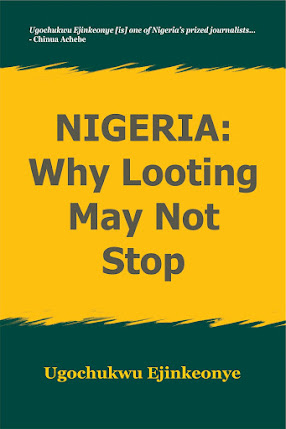By Obi Nwakanma
Fifty
years ago, on a Friday night at the Western Nigerian Governor’s lodge in Ibadan, a group of
soldiers led by Major Theophilus Danjuma committed a terrible act of treason.
They accosted their Commander-in-chief, Major-General Johnson Umunnakwe
Aguiyi-Ironsi, Supreme Commander of the Armed Forces and Military Head of State
of Nigeria only six months in the making, stripped him of his epaulettes and
his swagger stick shaped in the form of the Crocodile, and proceeded to arrest
him and his host, the Military Governor of the West, Colonel Francis Adekunle
Fajuyi.
 |
*Major-General Johnson Thomas
Aguiyi-Ironsi |
These
soldiers, some of them far too drug-addled, did not stop there. They proceeded
to administer brutal beatings and a careless torture of the General, and the
Governor, Colonel Fajuyi, supervised by T.Y. Danjuma, and Ironsi’s ADC, William
Walbe. They did not stop there: bruised and much bloodied, these two men were
later bound hand and feet, as legends would have it, and tied to a military
truck driven by Jeremiah Useni, through the streets of Ibadan,
and taken to that quiet spot on Iwo
road, where they were murdered and buried in mean and shallow graves.
Fajuyi
was by then, nearly dead in any case, far too brutalized to endure any further
humiliation. But Ironsi stood tall to the very end – the image of a great
elephant enduring the beatings that accompanied him finally to the dug-spot.
Accounts of Ironsi’s stolid, dignified and courageous handling of his brutal
end come to us by a number of eye witnesses. He was travelling with then
Colonel Hillary Njoku, Commander of the Lagos Garrison, in his entourage. They
were upstairs in the Governor’s lodge when they sensed the change in the air, by
the rustle of the mainly Northern troop that had been arranged for his guard
detail.
As soon
as they noticed the mutiny afoot on the grounds of the Governor’s lodge in Ibadan, they quickly knew
that they had only one shot at getting out there alive. Ironsi ordered Hillary
Njoku to find his way out of the grounds and make contacts with his
headquarters in Lagos
to send some reinforcement. Meanwhile, he got through to Yakubu Gowon on the
phone which were still working, to send a Helicopter for him. The Helicopter
did not come. Gowon, Ironsi’s Chief of Staff, was busy issuing different orders
to Danjuma in Ibadan, and apparently to Murtala
Muhammed and Martin Adamu in Lagos,
the arrowheads of that July mutiny. Neither did any reinforcement come. Just as
he was attempting to sneak out of the Governor’s lodge, the mutineers saw
Colonel Hillary Njoku, and fired shots at him. He escaped by scaling the fence
of the Government House, but was so seriously injured he had to find his way to
the University College Hospital,
where he was treated.























.jpeg)







.jpeg)



